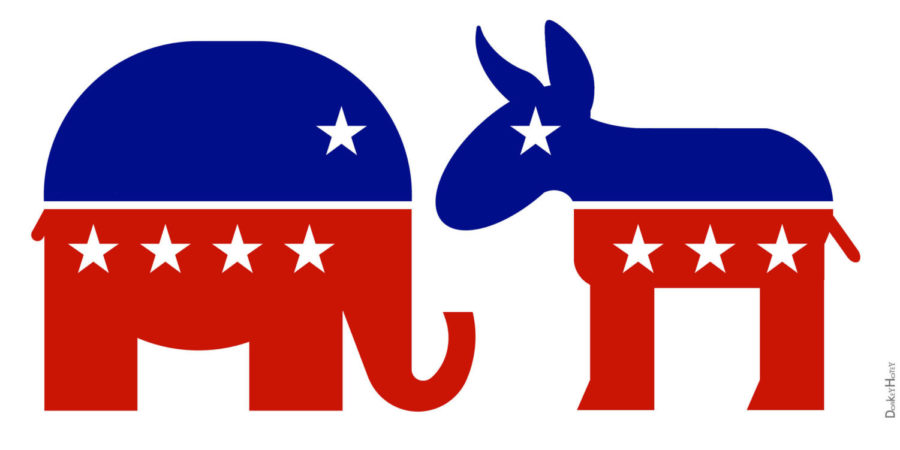Tyrrell: America, we need more parties
Columnist Eileen Tyrrell argues that there should be more than two political parties in America. She believes that the two parties don’t reflect Americans’ personal beliefs and values.
February 17, 2020
When George Washington left office in 1796, he had two infamous pieces of advice for the budding country: Don’t get involved in foreign affairs and don’t let opposing parties dominate the political system. Specifically, that political parties are “potent engines, by which cunning, ambitious and unprincipled men will be able to subvert the power of the people and to usurp for themselves the rein of government, destroying afterwards the very engines which have lifted them to unjust dominion.”
Spooky, isn’t it? Both pieces of Washington’s advice are eerily relevant for the time we live in, but it’s the second part that really sticks with me, because if the current and past presidential election cycle have taught us anything, it’s that we are ready to break away from the two-party system.
The problem with the parties as they stand right now is obvious. Donald Trump doesn’t reflect the beliefs of all Republicans and the Democratic nominee — whether that be Sanders, Buttigieg or someone else — certainly won’t have the support of all Democrats.
According to a 2018 report by Democracy Fund Voter Study Group, 68 percent of Americans want a third party. This number is the highest it’s been in the past 25 years, and with the widening split in the Democratic party, it seems likely to keep growing. (And if the Republican senators in office didn’t cower, there would likely be a growing split in the Republican party, too.) Americans want their party to reflect their personal beliefs and values, and in a country so diverse in identity and ideology, that means we simply need more than two political parties.
If it were up to me, our country would switch to a four-party system: moderate Democrats (i.e. Amy Klobuchar, Joe Biden), true liberals (Sanders, Alexandria Ocascio-Cortez), traditional conservatives (Mitt Romney, Justin Amash), and whatever values tie together the remaining Trump supporters. (Ignorance? Fear? I digress.)
I believe this sort of divide would more accurately reflect the ideological beliefs of the country. But however ready we may be for more parties, our system is not. The rules of the electoral college and the strong polarization of our political system mean that even if a third-party candidate could gain enough support and traction to make a serious bid for president, we are still far away from a whole new political party.
One of the largest obstacles to that sort of change is the lack of conversation and awareness around this topic, and that’s something we can start changing right now. Most Americans don’t really have a good understanding of what electoral reform would mean for the country, or how, for example, proportional voting could make their vote more impactful. But if we start becoming more educated and talking about the reform we want to see in our political system, then so will our representatives.
Other countries, like in Western Europe and New Zealand, are much more flexible and adaptable when they see problems in their electoral system. It’s high time that we figure out how to do that, too.







